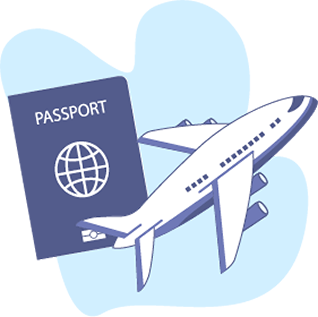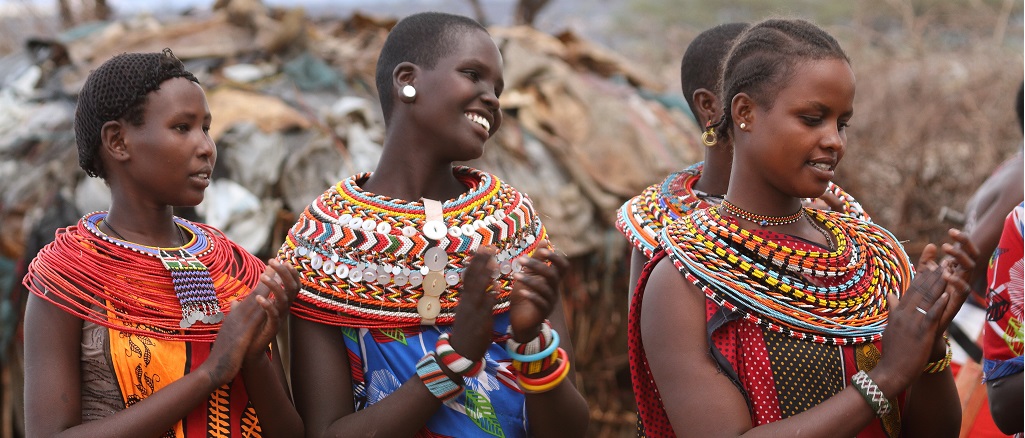A favourite with safari lovers, Kenya’s dramatic landscape takes in sweeping valleys, soaring mountains (including the famous Mount Kilimanjaro), lush lakelands and miles of Indian Ocean coastline.
With a culture as unique as its vistas, the Kenyan motto is ‘Harambee’, meaning ‘to pull together’, and the country’s national holidays are a time for communities to come together in celebration. In this article, we will look at Kenya’s important holidays and the traditional celebrations that go with them.
Due to the wonderful climate, most of Kenya’s holidays and celebrations involve outdoor eating and entertaining. Grilled barbecue meats and a plethora of side dishes tend to make up the feasts. The people have a huge passion for dancing, and this can go on for hours during celebrations. They certainly know how to ‘bust some moves’!
Read on to learn more, and you can apply for your Kenya eVisa on our dedicated page to obtain your travel document to visit this amazing country.


Contents
What Kenya Holidays and Traditions Are There?
Holidays and celebrations in Kenya are a melting pot of Christian, Islamic, Hindu and uniquely Kenyan events, all of which are celebrated enthusiastically with friends and family. Hindus living in the country will sometimes celebrate in different ways, including events such as Diwali (Festival of Lights).
List of Special Kenya Holidays
Aside from Kenya’s national holidays (which we examine further below), here are some of the enjoyable holidays celebrated, when the people really let their hair down:
East African Arts Festival
Hosted by the Kenyan National Museum, the East African Arts Festival is an explosion of theatre, fashion, music, literature, sculpture and traditional crafts. Held over 3 days in March, this important festival attracts competitors and spectators from across the globe every year.
If visiting the festival, you will find food stalls selling the traditional ‘Nuama Choma’. This is a local delicacy of chicken, beef or goat which has been slow-cooked over hot coals until the meat is so tender that it literally melts in the mouth.
This festival is an absolute riot of colour, which needs to be captured on camera!
Easter
Along with around 95 other countries around the world, Kenyans celebrate Easter, the religious holiday which commemorates the resurrection of Jesus Christ.
- As with many other holidays, Easter here is decidedly more colourful than in other countries and features Good Friday street processions with dramatic recreations of the Stations of the Cross.
- The Saturday will usually involve church services and the lighting of candles followed by a bonfire outside of the church.
- Easter Sunday is celebrated with feasting, singing, bell ringing and the coming together of friends, families and communities.
Alas, Easter eggs are not a traditional part of the Easter celebrations, but why not try a local delicacy, ‘the chocolate Mandazi’? This is a more-than-acceptable alternative to your usual indulgent egg.
For residents of the country, the place to be at Christmas is Mombasa. Meanwhile, at Easter, everyone flocks to the cities of Naivasha and Nakura.
Idd-ul-Fitr
The population here is approximately 11% Muslim and so Idd-ul-Fitr is a major event on the annual calendar, taking place in May or June.
This ancient event takes place when the sighting of the moon marks the end of fasting in the holy month of Ramadan. As well as traditional cleansing rituals and prayers, Muslims celebrate Idd-ul-Fitr with whole days spent feasting and socialising with friends and family.
International Camel Derby and Festival
This one is very much a Kenyan tradition, albeit a relatively new one as this derby and festival only really began in 1990. This annual festival occurs on the Maralal town outskirts, and centres around a camel racing derby which is open to amateurs and takes place over several days.
The locals are extremely competitive and ‘winning’ camels can exchange ownership for large amounts of money!
The event, which takes place in August, also includes lots of entertainment for spectators including donkey and camel rides, food stalls, children’s entertainment, plus the opportunity to rent a camel for a day.
What Are the National Holidays of Kenya?
As with most countries, the major Kenya holidays are those which are unique to the country and these are:
Mombasa Carnival
Celebrated in November, the Mombasa Carnival honours Kenyan culture with a festival held close to the Indian Ocean in Mombasa.
The star turn of the festival is a street parade with floats which highlight the different tribal identities of the country but, of course, that is not all.
The festival also includes entertainment by musicians, dancers, artists and tribal people. In addition, there’s lashings of eating, drinking and dancing for the thousands of people who flock to Mombasa for this popular event.
Jamhuri Day
This incredibly important Kenyan holiday celebrates the country becoming a republic in 1964 as well as its independence from Britain in 1963. This holiday is held on December 12th each year, and the Swahili word ‘jamhuri’ literally translates as ‘republic’.
This pivotal event in the Kenyan calendar is marked with speeches from each of the 8 provincial presidents, street parades, dancing, fireworks and, of course, feasting and socialising.
What Are the Kenya Christmas Holidays Like?
In many respects, the Kenyan Christmas celebrations are remarkably similar to those elsewhere in that the birth of Christ is honoured with church services, nativity performances, carol singing and feasting.
Having said that, the traditional Christmas meal in Kenya is goat, while most Kenyans will decorate their homes with balloons, flowers and green leaves rather than tinsel and lights. Although many Kenyan parents do give children gifts at Christmas, these tend to be more practical items such as books and church outfits.
For the Kenya Christmas holidays, people return from the big cities to their hometowns. It can get quite chaotic with the traffic, plus people visiting shops, markets and restaurants to get together with those they have not seen for a while. Some nationals may take around 4 weeks off!
If you are by the beach, sit up from sunbathing and you might see Santa going past on water skis, or perched on a camel delivering presents! The inhabitants go all out for a fun time and plenty of food.
For visitors looking to spend time in Kenya in December, Christmas is a great time to be here. Not only will you get to enjoy the unique Kenyan Christmas experience but, during this month, the weather is clement with only a small amount of rain.
Also, you will have the bonus of seeing new-born animals and migratory bird species. For a magical Christmas, head to Nairobi for plenty of sunshine, some awe-inspiring scenery and wildlife. Some fantastic indoor activities include museums, concerts and traditional cultural events.
New Year
Like most nations, people in Kenya begin celebrating the new year on December 31st with church services, fireworks, music and general merrymaking. These celebrations will often continue well into dawn and, in fact, into New Year’s Day with beach parties and musical performances.
What Kenya Holidays in October and December Are There?
The last quarter of the year is a great time to be in Kenya due to its warm weather and wealth of traditional holidays where visitors are given a warm welcome. In October, Kenyan people celebrate 2 main festivals which are:
Huduma Day
Translated as ‘Service Day’, Huduma Day is celebrated on October 10th to honour former Kenyan Prime Minister, Daniel Arap Moi.
Mashujaa Day
Also referred to as Heroes’ Day, October 20th marks Mashujaa Day which is a public holiday to remember all of those who contributed toward achieving Kenya’s independence.
Meanwhile, in December, as well as Christmas and Jamhuri Day, people in Kenya celebrate Utamaduni Day (known elsewhere as Boxing Day) with prayers, food and social activities. This holiday also doubles up as a celebration of Kenya’s unique culture – in fact, the name ‘Utamaduni’ translates indirectly to the word ‘culture’.
Kenya holidays in October and December provide a wealth of cultural experiences and give you a great chance to celebrate with the local population.
List of Kenya National Holidays
For ease of use, here is a calendar of Kenya’s holidays when businesses are officially closed. Some of these dates change, so check when the event is held each year!
Holiday Name |
Date of Holiday |
|---|---|
| New Year’s Day | January 1st |
| Moi Memorial Day | February 11th |
| Good Friday | March or April (varies) |
| Easter Monday | March or April (varies) |
| Labour Day | May 1st |
| Idd-ul-Fitr | May or June (varies) |
| Madaraka Day (Self-Governance Day) | June 1st |
| Idd-ul-Azha | July or August (varies) |
| Huduma Day (Service Day) | October 10th |
| Mashujaa Day (Heroes’ Day) | October 20th |
| Diwali | October or November (varies) |
| Jamhuri Day (Republic Day) | December 12th |
| Christmas Day | December 25th |
| Utamaduni Day (Boxing Day) | December 26th |
Other Useful Kenya Holiday Information
No visit to Kenya is complete without visiting a few of the markets on offer. Most are in Nairobi, but others are spread around the country. Food markets are a revelation, but for a bit of fun, visit one of the many flea markets’ (called ‘mitumba’).
Add on a Kenya safari, and you will have a great time in this wonderful land, where the people smile all day!

